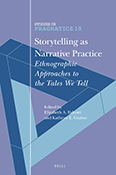- Ph.D., Anthropology, University of Michigan
- M.A., Russian and East European Studies, University of Michigan
- M.A., Anthropology, University of Michigan
- A.B., Anthropology and Linguistics, University of Chicago

Kathryn E. Graber
Associate Professor, Anthropology
Associate Professor, Central Eurasian Studies
Director, Qualitative Data Analysis Laboratory
Director, Graduate Studies


 The College of Arts
The College of Arts